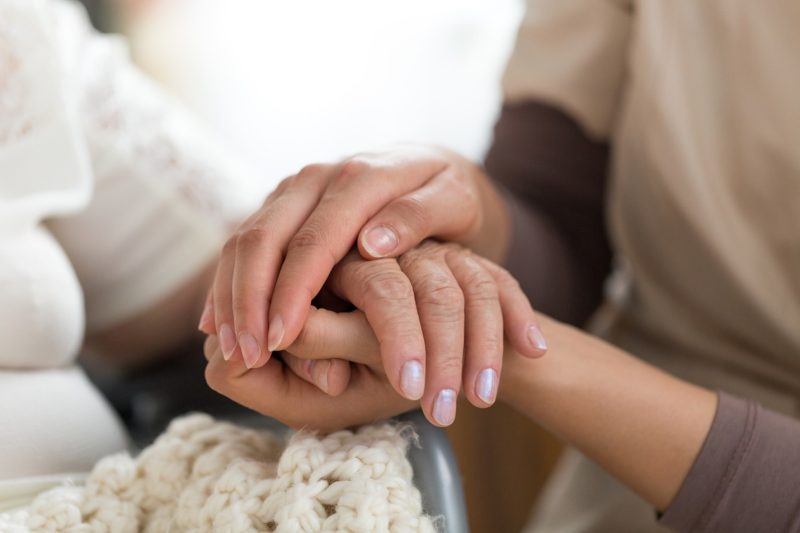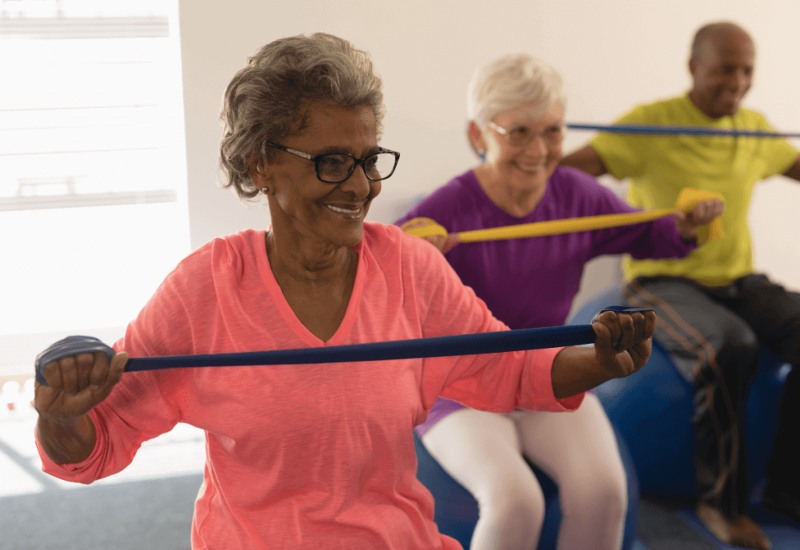Suggestions for Family Caregivers Caring for a Senior at Home
More and more older people are electing to age in place or move in with a family member rather than try to adapt to a new community. In addition to cost savings, staying at home offers the aging person the comfort of a familiar environment and the company of loved ones. Caring for a senior at home can be both rewarding and challenging. Family caregivers must prioritize self-care, manage stress, and find a balance in their caregiving responsibilities to ensure they can provide the best care possible. Here are ten tips to help family caregivers in this role:
Educate Yourself
Whether you are just beginning to care for your older loved one or have already been at it for a while, there is a wealth of information you can access that is either personal to the individual or more general information to access. Learn about your loved one’s medical conditions, medications, and needs. Understanding their health issues will help you provide better care and communicate effectively with healthcare professionals. The National Institutes of Health includes a National Institute on Aging (NIA), and many prestigious institutions like the Mayo Clinic and Harvard Medical School have introductory and in-depth resources about aging and particular issues that might be facing your loved one.
Establish a Routine
Whether you are living in your loved one’s home or they have relocated to live with you, the change can be disruptive for everyone. An excellent way to adjust to the new normal is to create a daily routine that includes time for caregiving tasks, breaks, and self-care. Consistency can reduce stress for both you and your loved one. Routines are particularly important for older adults with dementia. The Alzheimer’s Association has a great article on how to create a daily plan.
Stay Organized
A daily plan is only one part of caring for an older adult. As people age, they have increased health needs that need careful attention. Maintain a caregiving calendar or journal to track medications, doctor’s appointments, changes in symptoms, and other important information. Ensure that medications and other equipment are properly stored, sorted, and easy to find for you or someone else filling in for you.
Take Breaks
Caregiving can be physically and emotionally exhausting. According to the Cleveland Clinic, caregiver burnout presents severe risks to you and your loved one. It’s important to make sure that you build breaks into your day. Schedule regular time to rest, recharge, and engage in activities you enjoy.
Seek Support
Don’t be afraid to ask for help. Reach out to family members, friends, or support groups for assistance and emotional support. You don’t have to do it all alone. In the Montgomery County area, there are many resources available for caregivers as well as the older adult. The AARP (American Association for Retired People) has an excellent article about how to find a good fit for a caregiver support group for you.
Prioritize Your Health
It’s easy to get so focused on your loved one’s needs that you forget about your own. This can do a disservice to both of you since you won’t be able to support their needs if you fall ill. Make time for regular exercise, a balanced diet, and adequate sleep to maintain your physical, mental, and emotional well-being. In addition to a support group, you should consider working with a mental health professional to process the difficulty of caring for a loved one as they age.
Set Realistic Expectations
It can be hard to bear the responsibility for your loved one’s well-being. Understand that you can’t do everything perfectly. Set realistic goals for yourself and accept that some days will be more challenging than others. As your loved one ages, you will need to adapt to their new health issues and reduced capabilities, so it’s essential to make sure you adjust your expectations as well.
Communicate Openly
As a caregiver of a loved one, it’s important to their well-being and yours that you keep their individual needs and desires in mind. Keep the lines of communication open with your loved one. Discuss their needs, preferences, and concerns. Listen actively to their feedback and be empathetic. If they are suffering from cognitive decline, it is still possible to work with them to make sure they have a sense of independence and ownership of their health and comfort. The National Institute on Aging has some great suggestions for adjusting your communications with your loved one with dementia.
Delegate Tasks
You are not alone. As you tap into resources for your loved one and yourself, you should also work on sharing the caregiving responsibilities with other family members or consider hiring professional in-home caregivers. Other responsibilities can be delegated to other professionals like Everyday Money Management for help with finances. You can work with a professional organizer if you struggle with changes like decluttering the house for safety. Explore food delivery, transportation services, and other ways that you can lift the burden off your shoulders and focus on being present for your loved one.
Take Advantage of Respite Care
Explore respite care options to give yourself a break when needed. Respite care services provide temporary relief from caregiving duties, allowing you to recharge. Whether tapping into a sponsored respite care program like Arc Montgomery County or utilizing a private in-home care service, you will be better able to care for yourself if you are confident that your loved one is in good hands when you can’t be there yourself.
A final word for family caregivers caring for a senior at home
Remember that caregiving is a marathon, not a sprint. It’s essential to find a balance between caring for your loved one and caring for yourself. Don’t hesitate to seek professional advice or counseling if you feel overwhelmed or stressed. Your well-being is crucial in providing the best care possible for your senior family member. If you are the primary caregiver for an aging adult, SmithLife Homecare may be able to provide essential support. Contact us to learn about our services and resources.
Note from the author-
Thank you for reading our latest blog post at SmithLife Homecare. If our content has been helpful, please share it with others. We’re committed to providing valuable insights on homecare and well-being, with fresh content monthly. We value your feedback and suggestions; feel free to leave a comment below. Your support helps us make a difference. Stay tuned for our monthly blog posts!

About the Author-
Renan Augusto is the Director of Digital Marketing for SmithLife Homecare. SmithLife Homecare is a senior in-home care provider located in Rockville, MD & Washington, D.C. Renan has a Master of Science in Digital Marketing. He helps families with starting home care service. He holds credentials as a Certified Dementia Practitioner, Senior Home Safety Specialist, and Meta Certified Digital Marketer.




Thank you for the information. It is very informative.